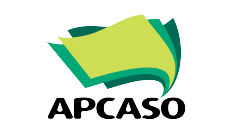This is the first in a series of case studies highlighting the results of the “Global Fund Realities on the Ground” a research study conducted by APCAS0’s APCRG Platform to measure civil society and communities’ experience when engaging in the key stages of country dialogue process under the Global Fund 2017-2019 funding cycle.
Good working relationships with the Principal Recipients (PRs) help key populations and communities become more engaged in the funding process. These kinds of relationships are nurtured and fostered, so that the impact becomes palpable throughout the funding cycle. A survey conducted by APCASO in 2018 was able to show how civil society and communities can work with their Country Coordinating Mechanism (CCM) in mutually beneficial relationships.
In Indonesia, one PR of the Global Fund, Spiritia Yayasan, was cited by its partner organisations, communities, and key populations as having helped them be more involved in country dialogues all throughout the funding cycle. Spiritia is a catalyst PLHIV organization that currently works with community-led organizations of people living with HIV and key populations including men who have sex with men (MSM), transgender persons, sex workers, and persons who inject drugs (PWID). They have been a PR since 2016, and are on their second funding cycle.
Many organizations acknowledged the efforts of Spiritia, in its role as PR, for how they were able to contribute and engage at all stages of the model, citing “communication and coordination among organizers in terms of organizational involvement” as a factor that influenced their level of engagement. In Indonesia, communities credit organizations such as Spiritia, in their efforts to reach out in making this sustained engagement possible, particularly in giving them access to the draft funding request and budget.
In Viet Nam, the Viet Nam Union of Science and Technology Associations (VUSTA) played an enabling role as PR. VUSTA is a volunteer coalition of non-governmental organizations in various science and technology fields. It provides prevention and treatment services and is notable for having a holistic approach–operating a free legal advice hotline, free legal services and psychological support for key populations affected by HIV.
Being the first civil society recipient in the country, VUSTA has given key populations and communities access to the funding request and budget in its development stages, allowing them to contribute to the concept note, and also giving them access to the technical review documents. The communities and key populations also benefited from being able to comment on the overall grant document, and observed that with their engagement “civil society’s voice has more impact.”
CCM representatives play a significant role in strengthening the voice of their constituencies, by promoting the development of mechanisms for sustaining continuous engagement, such as regular in-person meetings and broader inclusion in the funding process. Moreover, key population organizations and community networks must be supported in conducting respective consultations among their constituencies that must be community-led and organized. In turn, traditional stakeholders must be oriented with the significance and crucial role of key populations and communities in engaging in CCMs.
Sources
Aberejo, N. 2015. “Marking a progression in its HIV landscape, Vietnam chooses a civil society PR” retrieved from https://www.aidspan.org/gfo_article/marking-progression-its-hiv-landscape-vietnam-chooses-civil-society-pr
APCASO APCRG, 2019. Global Fund: Realities on the Ground report, rertrieved from https://apcaso.org/apcrg/wp-content/uploads/2020/01/Global-Fund-Realities-on-the-Ground_APCASO.pdf
Ashoka Fellows, 2017. Yayasan Spiritia. https://www.changemakers.com/ashoka-fellows/entries/yayasan-spiritia-0
Global Fund, 2018. Audit Report Global Fund Grants to Vietnam. Retrieved from https://www.theglobalfund.org/media/7581/oig_gf-oig-18-014_report_en.pdf?u=637166002390000000
